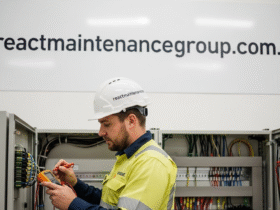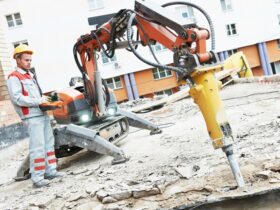Debating which driveway surface to go for? Considering opting for the durability of asphalt but a tad bit hesitant about its maintenance? Ever wondered about the economic and environmental implications of our driveway choices? If your mind is littered with these pressing queries, then you’re in the right place. In this post, I’m going to take you through the ins and outs of asphalt driveways – from installation and maintenance to repair – in a comprehensive and easy-to-understand way. By the end of this guide, you’ll be armed with all the necessary knowledge to make an informed decision about your next driveway project.
The choice of driveway surfacing reflects a balance between cost, aesthetics, and practicality. And amongst the many options available, asphalt often emerges as a top contender due to its durability and economic efficiency. But the journey to install and maintain an asphalt driveway doesn’t come without its puzzles and challenges. Let’s untangle the knots together, step by step.
Whether you’re a DIY enthusiast considering a weekend project, or someone weighing the pros and cons of different materials before hiring a contractor, I endeavour to shine a light on the installation, maintenance and repair of asphalt driveways. From prepping the driveway area to patching up cracks, I’ll give you a lowdown on everything you need to know.
Understanding Asphalt
Asphalt, essentially a black viscous liquid, is often used for paving roads and driveways. When mixed with aggregate (like gravel and sand), it transforms into a durable surface resistant to various weather conditions. The key to asphalt’s durability is its flexibility, which allows it to expand and contract without cracking.
Dig a bit deeper, and you’ll discover asphalt’s environmental friendliness. It is one of the most recycled products in the world, contributing to an ever-increasing cycle of use and reuse. Furthermore, this material can aid in reducing noise pollution, a little-known yet significant benefit for urban dwellers with homes bordering busy roads.
However, asphalt isn’t a magic bullet – it demands regular maintenance and inspections to keep it at its best. Ignoring minor cracks can lead to larger, costlier repairs. So, although it’s a durable choice, asphalt needs a vigilant eye to prolong its lifespan.
Installing Your Asphalt Driveway
The installation procedure of an asphalt driveway sounds relatively straightforward – clear the ground, install a sub-base, lay the asphalt, and then compact. But each phase requires diligence and understanding.
The foundation, or the sub-base, is a critical step in this procedure. Often, crushed gravel is used due to its excellent compaction properties and drainage capabilities. A poorly installed foundation may result in the asphalt layer sinking.
Similarly, the temperature and weather conditions during installation can influence the final result. The asphalt mixture must be hot to ensure proper adhesion and compaction. Consequently, colder temperatures might interfere with these processes and affect the driveway’s durability.
Maintaining and Inspecting Your Driveway
An asphalt driveway isn’t something you install and then forget about. Regular maintenance, including cleaning, seal coating, and inspection for cracks, can extend the life of your driveway significantly.
Sealcoating is particularly important. This process involves applying a protective layer to the asphalt surface which shields it from damage caused by water, UV rays, and vehicle fluids.
Remember, catching and addressing minor damages early can save you from larger headaches down the line. A careful inspection at least twice a year is a good practice to always keep your driveway in tip-top shape.
Repair and Maintenance Costs
Like most materials, asphalt comes with its own set of costs. Installation charges range depending on the area to be covered and your location. Similarly, the type of asphalt used can influence the price.
Maintenance costs encompass regular seal coating. While seal-coating can be a DIY effort, hiring a professional often ensures a more durable and long-lasting finish.
Repair costs can be trickier to pinpoint since they depend on the extent of the damage. Small cracks or potholes can often be patched up by most homeowners, but more significant damages may require professional help.
Pros and Cons of Asphalt Driveways
Asphalt driveways come packed with advantages such as durability, cost-effectiveness, and recyclability. But like all things in life, there are downsides too. They require regular maintenance and aren’t hugely resistant to oil spills and petrol leaks.
All things considered, it’s critical to weigh the pros and cons based on your personal needs, budget, and environmental impact. With careful planning and regular maintenance, an asphalt driveway can be a great long-term investment.

Closing thoughts
In the world of driveways, asphalt proves to be an underdog that packs a punch. Versatile, environmentally friendly and economical, it makes a great case. Though it does require regular maintenance, a well-cared-for asphalt driveway can outlast many of its competitors.
While the initial costs and effort involved in installation and repair might seem daunting, remember that an asphalt driveway is a long-term investment. With routine maintenance, it can not only elevate the overall look of your home but also offer a return on investment through durability and longevity.
In the end, the choice is yours. Arm yourself with the information needed to make the right decision and may your driveway projects always be successful!











Find Us on Socials